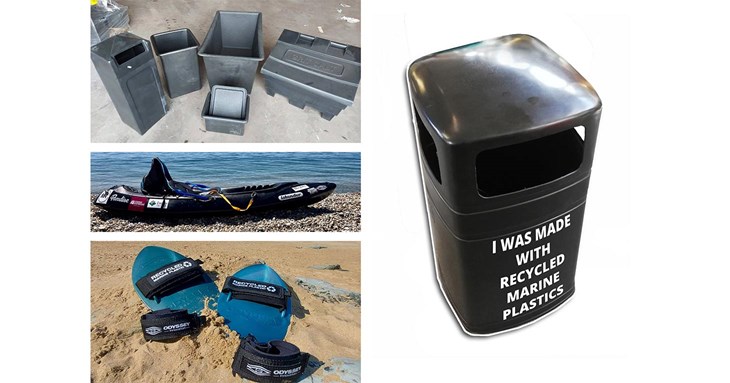Exeter is transparent on what we can and cannot recycle
Published: 6 October 2021

In his latest regular blog our recycling and environmental expert Denis the Dustcart highlights how the Council recycles plastic collected in Exeter and beyond.
We have always tried to be transparent about what we can and can’t recycle.
It’s what the public demands.
This means, of course, that our advice changes from time to time.
For example: black plastics. As one of a very few local authorities in the country to own and operate a Materials Reclamation Facility (MRF), our processes have allowed us to sort it – but that’s only part of the recycling process, and black plastic avoids infrared detection in plants where plastic is further processed for manufacturing. In other words, the problem for us wasn’t being able to sort it, but finding anywhere that would take it.
This had led us to take a flexible approach to telling people what to do with it…but we have some exciting news!
We have just installed a granulator in our plant that allows us not only to accept your black and hard-to-recycle plastics, but to go beyond sorting it and actually prepare it for manufacturing.
This means we can do three things:
- work with partners like Odyssey Innovation, who take our plastics to manufacture products like kayaks, surfing handplanes, boxes, bins and other goods;
- produce a composite (mixed) granulate for manufacturing into products created regionally, such as Recyclebound driveways by Oltco in Newquay;
- create a granulate for other companies such as Nurdle, who make phone cases from local waste plastics.
As the operator of a local MRF, we are able to pursue options to link up with regional companies who have created bespoke solutions for this waste. This is our advantage.
No operator of a national MRF, receiving plastic from local authorities and businesses all over the country, is going to accept and process problem plastic separately for sale to small, boutique recyclers.
The options for the kinds of products this plastic can be turned into are limited, but through seeking collaboration with organisations, charities and innovators we have been able to give it an extra life nevertheless.
We believe in maximising our potential to have a positive impact on the environment, and by taking key steps we have created solutions for your plastic that no other local authority has achieved so far.
We of course believe in good economics, too, which is why everything we do is costed to ensure an income for public services in Exeter.
Ultimately, the better recycling is sorted, the more potential there is for it to be turned into useful, and therefore valuable, products again.
We want to make sure our clear plastic bottles, for example, are not only recycled into clear plastic bottles or trays, but within the UK.
We used to send them to Germany, to a company we knew turned them into plastic bottles. Sending recycling overseas doesn’t always mean not taking responsibility for it. But then we found a solution in the UK and transferred there.
Bottles may be one of the more easily recycled items, but getting them recycled into bottles again means going the extra mile.
However we also always recognised there was potential in some other, less likely items.
We were the first local authority in the country to enter into a circular arrangement with a plastic film reprocessor, whereby we get plastic bags recycled into plastic sacks for use in Exeter’s litter bins.
It’s more important than ever that as many people recycle as much as possible – at least, to recycle what they can’t reuse or avoid buying in the first place. But for that to happen, people need to feel confident that what they put in their recycling bin will actually be recycled. That it won’t end up on a roadside in Turkey.
That is why we opt for transparency – and why we treat it as our moral responsibility to seek the most sustainable solutions for what we can accept for recycling.
If we have to tell you we cannot accept something in the green bin, it will be for a good reason. It doesn’t mean we are not looking for a solution; it simply means we haven’t found one at that time.
Any material we receive into our MRF that we can’t get recycled, we will take it to Exeter’s Energy from Waste plant. This includes crinkly bags, crisp packets, scrap textiles, etc..
But we won’t stop pushing ourselves to seek the very best solutions available within our means.
